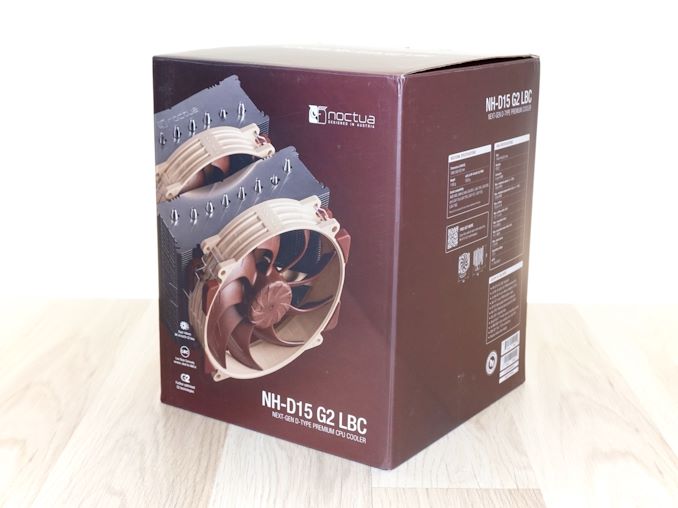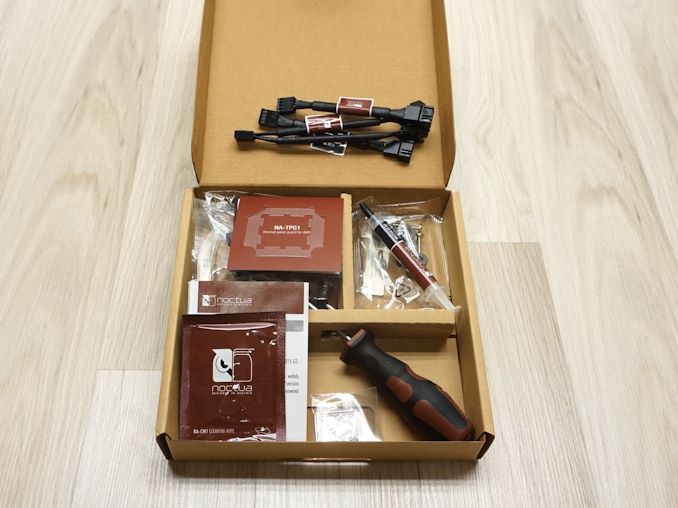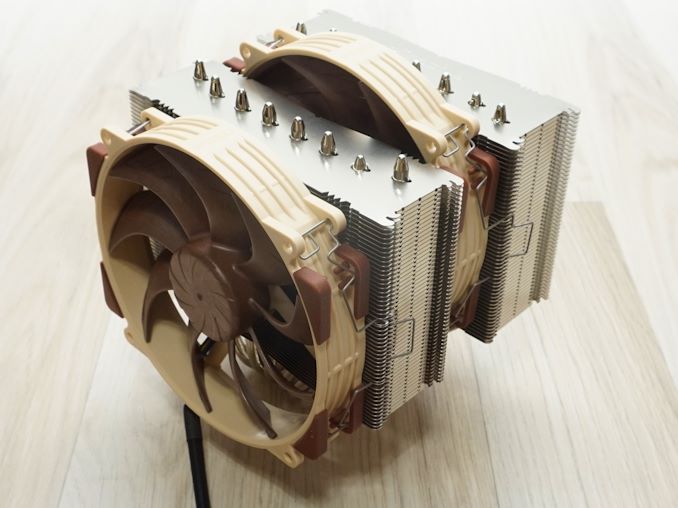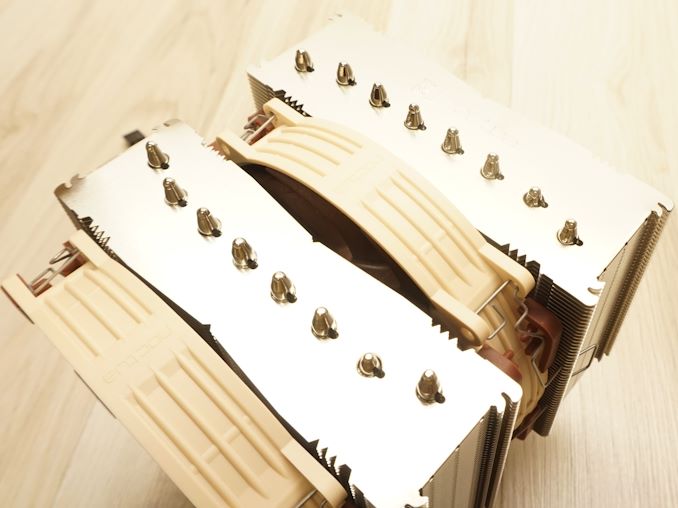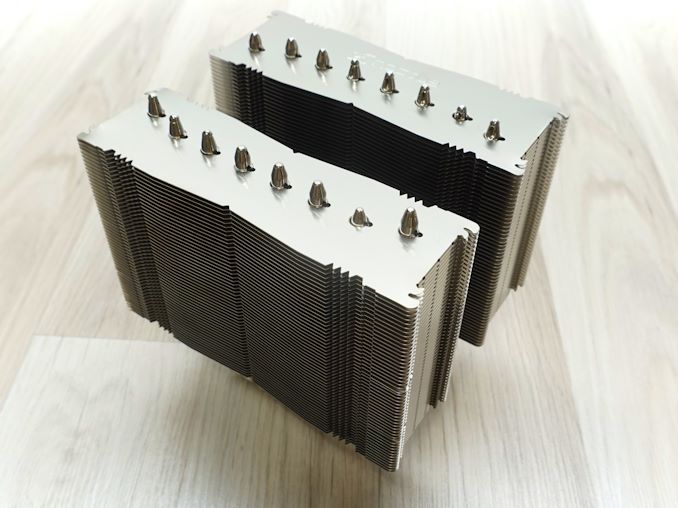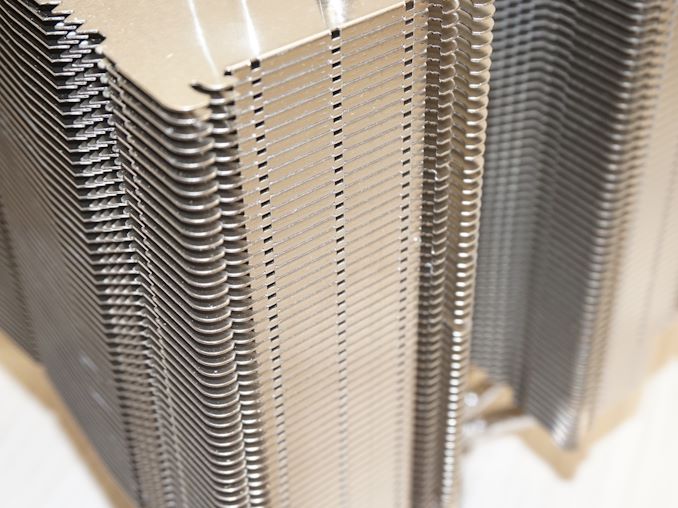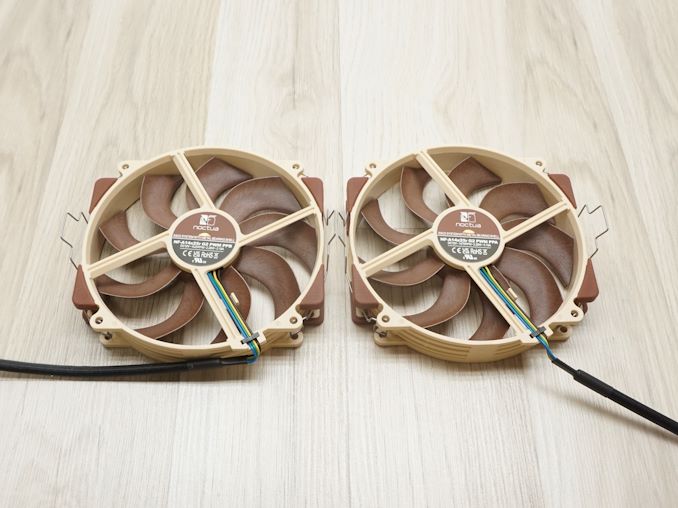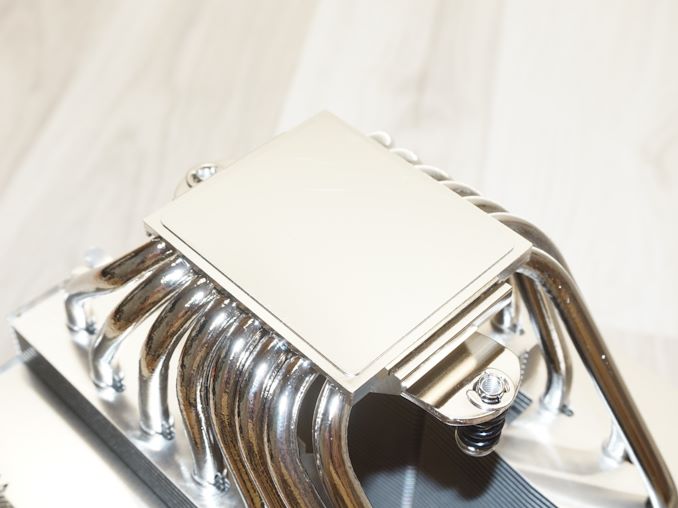Once you purchase a retail laptop CPU, it normally comes with a normal cooler. Nonetheless, most fanatics discover that the inventory cooler simply doesn’t lower it when it comes to efficiency. So, they usually find yourself getting a extra superior cooler that higher fits their wants. Choosing the proper cooler is not a one-size-fits-all deal – it’s a little bit of a journey. You must contemplate what you want, what you need, your price range, and the way a lot area you’ve in your setup. All these elements come into play when selecting out the right cooler.
In relation to high-performance coolers, Noctua is a reputation that steadily comes up amongst fanatics. Identified for his or her distinctive construct high quality and excellent cooling efficiency, Noctua coolers have been a favourite within the PC constructing neighborhood for years. A typical Noctua cooler will probably be punctuated by extremely quiet followers and top-notch cooling effectivity general, which has made them supreme for overclockers and builders who need to maintain their methods working cool and quiet.
On this evaluation, we’ll be taking a more in-depth take a look at the NH-D15 G2 cooler, the successor to the legendary NH-D15. This cooler comes with a hefty price ticket of $150 however guarantees to ship the very best efficiency that an air cooler can presently obtain. The NH-D15 G2 is out there in three variations: one normal model in addition to two specialised variants – LBC (Low Base Convexity) and HBC (Excessive Base Convexity). These variants are designed to make higher contact with particular CPUs; the LBC is beneficial for AMD AM5 processors, whereas the HBC is tailor-made for Intel LGA1700 processors, mirroring the marginally completely different geometry of their respective heatspeaders. Conversely, the usual model is an “one measurement matches all” strategy for customers who care extra about long-term compatibility over squeezing out each ounce of potential the cooler has.
For this evaluation, we’re wanting on the LBC model, as our strong copper testing station has no convexity, guaranteeing optimum efficiency analysis.
| Noctua NH-D15 G2 CPU Cooler Specs |
|||
| Kind | Air Cooler (Twin Tower) | ||
| Dimensions | 168 x 150 x 127 mm (H x W x D) 1525 gr |
||
| Followers | 2 x 140 mm SSO2 Bearing Followers 1525/1475 RPM (max) |
||
| RGB | No | ||
| Supported Sockets | Intel: LGA1851, LGA1700, LGA1200, LGA115x
AMD: AM5 / AM4 |
||
| Guarantee | 6 Years | ||
| Worth | $150 | ||
Packaging & Bundle
We acquired the NH-D15 G2 in a remarkably sturdy cardboard field. Noctua continues their custom of utilizing elegant, information-focused paintings on the packaging of all their merchandise, choosing simplicity over flashy design. Their total packaging is made from recyclable cardboard, with the only exception being the small plastic defend of the cooler’s base.
Contained in the field, the cooler was securely nestled beneath a number of layers of thick cardboard, guaranteeing glorious safety. The mounting {hardware} and extra equipment had been neatly organized in a smaller, compartmentalized field inside the principle package deal. We should always observe that there’s no mounting {hardware} for Threadripper or LGA20XX processors within the packaging, most likely as a result of Noctua provides specialised options for these processors.
Alongside the standard mounting {hardware} required to put in the NH-D15 G2 onto a CPU socket, Noctua contains a number of extra equipment. Contained in the field, you may discover a Torx screwdriver, a fan energy splitter cable, two “low noise” adapters to restrict fan pace, a tube of NT-H2 thermal grease, a thermal paste wipe, and a metallic case badge.
The Noctua NH-D15 G2 CPU Cooler
Noctua designed the NH-D15 G2 as their pinnacle air cooler, aimed toward reaching the very best potential efficiency whereas adhering to the corporate’s minimalist and stylish design ethos, with no pointless decorations.
Bodily, the NH-D15 G2 is an enormous – although comparatively easy – CPU cooler. Absolutely assembled, it weighs over 1.5 kg, and that is regardless of the heavy use of light-weight aluminum.
Design-wise, Noctua has caught with a traditional dual-tower design, with the array of fins floating above a small base and counting on heatpipes to switch thermal vitality away from that base to the principle physique of the cooler. This cooler options optimized asymmetrical fin stacks and an improved fan association that permits for a lowered fin spacing from 1.9mm to 1.6mm. This adjustment enabled the mixing of 23 additional fins, rising the whole fin floor space by 20% in comparison with the NH-D15. We should always observe that the thinner fins are also a bit flimsier and will be simply broken if mishandled.
In comparison with the unique NH-D15, Noctua elevated the variety of heatpipes from six to eight. The heatpipes are made from copper however are nickel-plated for sturdiness and aesthetics. The joints between the heatpipes and the fins are all soldered, guaranteeing most thermal switch and mechanical cohesion.
Regardless of these insertions, the NH-D15 G2 is barely smaller than its predecessor. The thick fin array and the presence of two followers make the cooler vast, however Noctua has ensured that it stays away from the PCI Categorical slots on a typical (m)ATX motherboard. Nonetheless, it could partially block some RAM slots, limiting RAM peak on these slots to 32 mm when each followers are put in (normal RAM peak).
Noctua’s engineers optimized airflow and acoustics through the use of two 140 mm followers as an alternative of 1. The followers used are the corporate’s personal designs with SSO2 engines (a mixture of fluid dynamic bearing with a magnetic levitation approach). Apparently, the 2 followers are literally barely completely different, as every has its personal pace ranking (1475 RPM & 1525 RPM). In accordance with the corporate, by barely offsetting the fan speeds by roughly 25 RPM, it minimizes undesirable harmonic results like periodic buzzing or intermittent vibrations. This system supposedly ensures smoother acoustic efficiency with out compromising cooling effectivity. Customers can additional modify the offset utilizing PWM management or low-noise adapters for customized acoustics.
The bottom of the cooler that makes contact with the processor is break up into two elements. The underside half is made from nickel-plated copper, maximizing the warmth switch price from the CPU to the heatpipes. This can be very well-machined and easy. As we have beforehand famous, simply how convex the bottom is will rely upon the model of the cooler – our LBC model seems to be completely flat, whereas the common and HBC variations can be more and more convex. The highest metallic brace serves solely as mechanical help.

